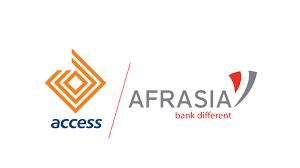The High Court of the Federal Capital Territory, Abuja, has nullified ongoing proceedings at the International Chamber of Commerce, London, initiated against indigenous oil firm, Aiteo Eastern Exploration and Production Company Limited, by a group of lenders that partially financed its acquisition of Oil Mining Lease 29.
In a ruling delivered on Tuesday, Justice S.B. Belgore held that the ICC arbitration commenced in defiance of existing injunctive orders issued by the Nigerian court constituted a “brazen affront” to the nation’s judicial authority and was therefore void.
“The arbitration proceedings in London, undertaken in clear disregard of binding interim injunctions, amount to a violation of this court’s authority. It is a breach that cannot be condoned,” Belgore said.
Bigger Dispute
The transaction at the heart of the dispute is one of the largest asset sales in Nigeria’s oil sector, with Aiteo acquiring OML 29 from Shell in 2014. The deal was backed by a $2 billion debt package arranged by a syndicate including Zenith Bank, GTBank, First Bank, Fidelity, AFC, Ecobank, Union Bank, Sterling Bank, and Shell Western, among others. Aiteo’s founder, billionaire Benedict Peters, contributed nearly $900 million in equity, plus an additional $257 million to restart operations.
Tempo Energy Nigeria Ltd., a minority shareholder in the acquisition consortium with a $136 million stake, alleged that it was sidelined from key legal and arbitration proceedings, including the ICC process. In January 2021, Tempo filed suit FCT/HC/CV/079/2021, seeking to halt any foreign litigation or arbitration initiated without its participation. The FCT High Court responded with an injunction on January 22, 2021, barring all parties from taking further steps abroad pending resolution of the matter in Nigeria.
However, ICC arbitration reportedly proceeded between 2021 and 2024, flouting the Nigerian court’s orders. On April 25, 2025, the Abuja Court of Appeal upheld the interim injunctions and dismissed the lenders’ appeal as an abuse of process—awarding ₦1.5 million in costs and ordering an expedited hearing at the High Court.
Tempo’s Argument
At a resumed hearing in May 2025, Tempo’s lead counsel, Kehinde Ogunwumiju (SAN), urged the court to void the ICC arbitration, describing it as “a contemptuous breach of the rule of law.” The defendants represented by senior lawyers including Joke Aliyu and Babatunde Fagbohunlu (SAN) argued that Nigerian courts lacked jurisdiction over foreign arbitration matters.
Justice Belgore disagreed. Dismissing the preliminary objection as “incompetent and an abuse of court process,” the judge ruled that the Nigerian court was well within its rights to restrain parties from engaging in foreign arbitration that undermines domestic judicial authority. He declared the ICC proceedings null and void, reaffirmed the standing 2021 injunctions, and awarded ₦500,000 in costs to Tempo Energy.
The matter was adjourned to September 29, 2025, for the hearing of consolidated interlocutory applications.
Aiteo vs Shell OML29 Case
In a separate legal battle (Suit No. FHC/ABJ/CS/738/2021) before the Federal High Court in Abuja, Aiteo is suing Shell for $2.5 billion, alleging fraud and misrepresentation during the sale of OML 29. Aiteo claims Shell failed to disclose the degraded condition of the asset at the time of sale, including long-standing operational and security issues. These, Aiteo argues, have severely impaired production and its ability to service debt obligations.
The case underscores the growing legal and financial complexity of asset transfers in Nigeria’s oil and gas sector—particularly as indigenous firms take on large upstream portfolios once dominated by international oil majors. More broadly, the High Court ruling reaffirms the role of Nigerian courts in regulating such high-stakes cross-border disputes, especially when foreign proceedings are seen to sidestep local judicial processes.






















